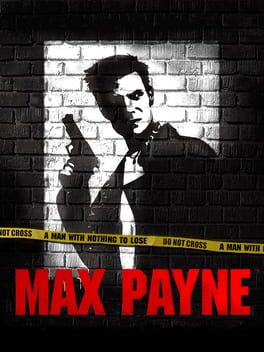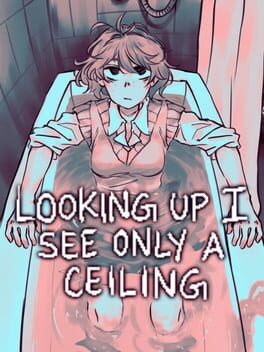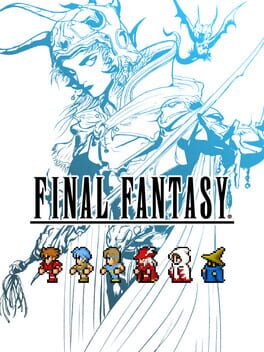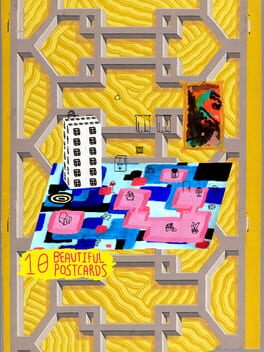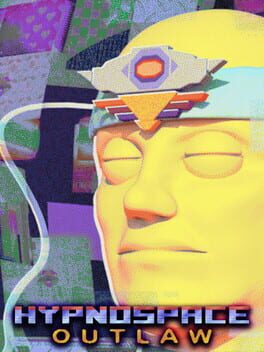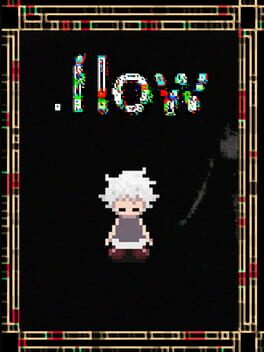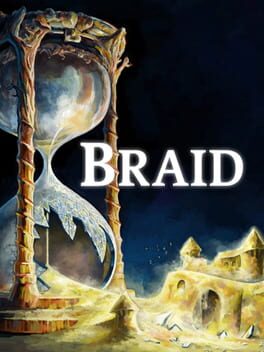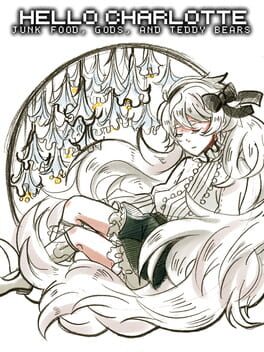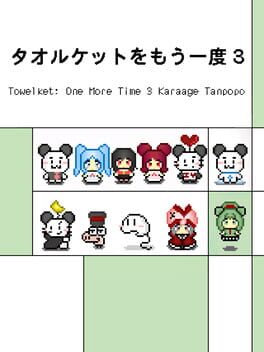13 reviews liked by Beb
Max Payne
2001
As you might expect from the way I constantly play and analyze important games, I try to do the same for albums, and this week I’ve been listening to Enter the Wu-Tang (36 Chambers). This was the first time I sat down to listen to Wu-Tang, and while the name of the group should have been a big hint, what surprised me was how the album was almost… dorky? It’s packed with references and samples from kung fu movies which were getting old even at the time of the album’s release, and you would think they would make the whole thing sound dated, but the reality is just the opposite. These movies were such a huge inspiration for producer/singer/songwriter The RZA that every track shines with the love. If you want to see just how much, check out this amazing interview where he talks about the movies he’s sampled, it’s plain that the enthusiasm hasn’t waned even 1% all these years later. That earnest appreciation has a certain magnetism to it, and it characterizes Max Payne in the same way it does Wu-Tang. You have references to oldschool noir, comic books, John Woo action, a whole slew of disparate influences, but they blend in a way that only fans who deeply understand the material could accomplish. James McCaffrey’s performance of the titular character is a big part of what brings it all to life, giving Max an edge while also establishing him as someone with a genuine sense of humor, but the extreme situation has dulled his ability to tell fantasy from reality. This blur turns the bullet-time mechanic from a simple cinematic homage into something that’s iconically Max Payne; it’s hard to tell whether the slow mo is something he’s imagining, or if his adrenaline is actually giving him the edge. The game’s ability to reuse proven narrative language while injecting it with new personality in this way is what makes the game such a timeless classic, it shines with the love of its influences while also being entirely original. I can only hope the upcoming remake knows how to do the same.
Max Payne
2001
"After Y2K, the End of the World had become a cliché. But who was I to talk? A brooding underdog avenger alone against an empire of evil, out to right a grave injustice? Everything was subjective. There were no personal apocalypses. Nothing is a cliché when it's happening to you."
In Max Payne, New York City comes first. We have a few moments just with the city, and the chatter of police scanners cutting through the howling snowstorm, before Max hits us with one of his characteristic delightfully purple parodic noir metaphor.
This might not seem worth noting, given what a tiny slice of the game it is, but I think it's important in the context of how the rest of the game's narrative is portrayed (mostly from Max's narration) and from the rest of Remedy's games that followed in Max Payne's lineage. Control, Quantum Break, and Alan Wake all open with their protagonists and their narration before the world, giving the player no time to form an impression of it outside the lens of our central character. Alan Wake offers the greatest window of time for this at a whopping two seconds before he starts banging on about Stephen King. So Max Payne giving us about a minute of time in snow-covered New York feels almost luxurious in comparison. And then Max Payne barges in, bringing Helheim with him.
I spend so much time pointing this out because any attempt to talk about what Max Payne is doing on any level below the surface makes one sound like a particularly unhinged conspiracy theorist, something that Remedy are explicitly aware of and has playfully prodded at in their future game Control in particular. Part of this is the conscious silliness of the surface-level: comic-sans narration boxes filled with prose so purple it can make fine wine, and, of course, the way the entire story is told through delightful school-play images made from the developers and their friends and family putting on ill-fitting outfits and making silly faces. There is a pervasive charm to all of this that invites luxuriating in it, but I think a common mistake one can make when reading any work is to simply assume that something is thoughtless because it's a bit silly. Remedy was not somehow unaware of the fact that they were a bunch of nerds and their relations playing dress-up, and indeed, lean into it.
The archness, the artifice, and the absolute over-the-top-ness of it all, evokes the tropes and styles it is pulling from so bluntly that it becomes solid in the mind, manifesting into a brick thrown at your face that then falls into your lap, remaining there and weighing on you, never letting you forget what it's doing. From the comic panels, to the tvs throughout the levels playing broad parodies of soap operas, Twin Peaks, and, uh, The News, to Max Payne himself, as he intrudes upon the serenity of New York at the beginning, a noir cliche diving in through the door from one of the better issues of Frank Miller's Sin City (the comic panels and narration and image of a city in white bearing greater similarity to those comics than anything starring Philip Marlowe) and leaving reality covered with bullet holes in his wake.
But here's the thing. He doesn't close the door behind him. And slowly, other things start to creep in.
A superhero with a baseball bat climbs out of a comic strip and into the head of a mob torturer who is a fan of the comic. The apocalyptic snowstorm that blankets the city of New York, and the pervasive Norse Mythology references that litter the game, crawl out of a book about Ragnarok being read by someone in the club Ragna Rock. Max's actions are fed into a news cycle that makes entertainment out of it. The game's genre references become recursive and circular, wrapping in on themselves over and over. Max becomes aware of his own status as a loose cannon cop out for revenge. Mobsters make themselves into occult monstrosities in order to survive. People write fiction. Fiction crawls into peoples' heads, influences them, and through them, the world. And then people carry those ideas back into fiction. People imposing on fiction, fiction imposing on the world. On and on it goes.
It is an imposition the player performs as well. I can't bring too much to the table in terms of the mechanical construction of Max Payne's fantastic moment-to-moment gunplay, as in many ways, the sheer joy of diving in slow-motion through a doorway and riddling an entire room of goons yelling "PAYNE!" full of holes simply speaks for itself with more wit than I could ever manage. However, one thing I do want to mention is something has, to a certain extent, been obscured by successive ports to consoles and phones and back to the PC. Max Payne was a PC game first and, I think, foremost, and understanding this is key to understanding how the game handles checkpoints, or, to be more accurate, how the game doesn't. Autosave points are extremely few and far between, and most deaths will take you back to the start of the level, and these deaths come quickly and mercilessly, with only a single mistake standing between Max and the grave eagerly awaiting him.
Of course, the game does not actually expect you to restart from the beginning of each level every single time. The game expects - an assumption that was reasonable given that this behavior was ubiquitous across Max Payne's contemporaries on the platform - for you to manually save the game and create your own checkpoints from which Max can resume his story after his next future full stop. This seemingly innocuous feature might be the game's cleverest ludic move, as together with fast deaths and often-scarce painkillers demanding a certain degree of trial-and-error perfectionism, the player is put into the role of director, cutting the action when they are satisfied with the scene as it played out. It is a system that imposes storytelling structure onto every aspect of play, including even the act of entering the pause screen to save and reload into its all-consuming storyboard.
On every level of it's construction, Max Payne is a game about stories insinuating themselves, loudly and quietly, into the real, and it's surprising to find the DNA that runs through Alan Wake, Quantum Break, and Control already fully-formed in (Death Rally aside) the studio's debut title, arguably more deftly and charismatically than any of those later works would manage. The strength of Max Payne is that unlike, say, Alan Wake, all of this is left to crawl around the periphery, only bubbling up very occasionally, allowing the player to put together the disparate images in their head, like a detective attempting to solve a mystery by staring at connected pins on a bulletin board. Indeed, I don't know if I would have the confidence to make this read if not for Remedy's future work pulling on all this stuff much more explicitly. Max comments on some stuff, but not all, and one of the most compelling images the game has to offer eludes his notice completely.
Late in the game, Max is recruited by a shadowy illuminati-like organization known as the Inner Circle, and learns that pretty much everything in the plot stems from their influence, and in particular, from one of their number who manufactured the US Military super-soldier drug that drives the game's plot: Valkyr. In his own piece on the game, critic Noah Gervais explains Valkyr, the hilariously cartoonish green goop drug that has it's origins in a military super-soldier project, as a kind of uniquely video-game pulp that bleeds in from what was typical for video games in that moment, and I would say that is fairly accurate. Where I deviate from Gervais is that he finds Valkyr to be a kind of ancillary element, something that emerges out of the video game milieu of the time rather than an intentional element, and that is where I disagree. Valkyr is a consciously artificial video game trope that begins this video game, in the same way that Max's dead family is a consciously Noir trope that begins this Noir story, created by a US military project run by a member of a secret organization who's headquarters is draped in conspicuous US historical ephemera, from the room looking like the briefing room of the White House, to the Washington Monument replica at the center of it all.
There was something disturbingly familiar about the letter before me, the handwriting was all pretty curves.
"You are in an American world, Max."
The truth was a burning green crack through my brain. The film noir aesthetic, the American comic influence, even the bullet-time mechanics derived from a filmmaker who, contemporaneously, was being consumed by the Hollywood machine making strange twists on the Hong Kong action films he so excelled at.
I was in a cultural world shaped by the hegemonic influence of American fiction. Funny as hell, it was the most horrible thing I could think of.
Everything after this point, after this moment, is perfunctory. The point is made, the statement is said. As Max would put it, the final gunshot is merely the exclamation mark to everything that led to this point. He fulfills his duties to the game and the genre strangely quietly, defeats the villain, and is taken away in the back of the car, knowing exactly what has, what is, and what will happen.
He releases his finger from the trigger, and then it is over.
Until you start again.
Try Hard Boiled mode or New York Minute mode for the next challenge!
In Max Payne, New York City comes first. We have a few moments just with the city, and the chatter of police scanners cutting through the howling snowstorm, before Max hits us with one of his characteristic delightfully purple parodic noir metaphor.
This might not seem worth noting, given what a tiny slice of the game it is, but I think it's important in the context of how the rest of the game's narrative is portrayed (mostly from Max's narration) and from the rest of Remedy's games that followed in Max Payne's lineage. Control, Quantum Break, and Alan Wake all open with their protagonists and their narration before the world, giving the player no time to form an impression of it outside the lens of our central character. Alan Wake offers the greatest window of time for this at a whopping two seconds before he starts banging on about Stephen King. So Max Payne giving us about a minute of time in snow-covered New York feels almost luxurious in comparison. And then Max Payne barges in, bringing Helheim with him.
I spend so much time pointing this out because any attempt to talk about what Max Payne is doing on any level below the surface makes one sound like a particularly unhinged conspiracy theorist, something that Remedy are explicitly aware of and has playfully prodded at in their future game Control in particular. Part of this is the conscious silliness of the surface-level: comic-sans narration boxes filled with prose so purple it can make fine wine, and, of course, the way the entire story is told through delightful school-play images made from the developers and their friends and family putting on ill-fitting outfits and making silly faces. There is a pervasive charm to all of this that invites luxuriating in it, but I think a common mistake one can make when reading any work is to simply assume that something is thoughtless because it's a bit silly. Remedy was not somehow unaware of the fact that they were a bunch of nerds and their relations playing dress-up, and indeed, lean into it.
The archness, the artifice, and the absolute over-the-top-ness of it all, evokes the tropes and styles it is pulling from so bluntly that it becomes solid in the mind, manifesting into a brick thrown at your face that then falls into your lap, remaining there and weighing on you, never letting you forget what it's doing. From the comic panels, to the tvs throughout the levels playing broad parodies of soap operas, Twin Peaks, and, uh, The News, to Max Payne himself, as he intrudes upon the serenity of New York at the beginning, a noir cliche diving in through the door from one of the better issues of Frank Miller's Sin City (the comic panels and narration and image of a city in white bearing greater similarity to those comics than anything starring Philip Marlowe) and leaving reality covered with bullet holes in his wake.
But here's the thing. He doesn't close the door behind him. And slowly, other things start to creep in.
A superhero with a baseball bat climbs out of a comic strip and into the head of a mob torturer who is a fan of the comic. The apocalyptic snowstorm that blankets the city of New York, and the pervasive Norse Mythology references that litter the game, crawl out of a book about Ragnarok being read by someone in the club Ragna Rock. Max's actions are fed into a news cycle that makes entertainment out of it. The game's genre references become recursive and circular, wrapping in on themselves over and over. Max becomes aware of his own status as a loose cannon cop out for revenge. Mobsters make themselves into occult monstrosities in order to survive. People write fiction. Fiction crawls into peoples' heads, influences them, and through them, the world. And then people carry those ideas back into fiction. People imposing on fiction, fiction imposing on the world. On and on it goes.
It is an imposition the player performs as well. I can't bring too much to the table in terms of the mechanical construction of Max Payne's fantastic moment-to-moment gunplay, as in many ways, the sheer joy of diving in slow-motion through a doorway and riddling an entire room of goons yelling "PAYNE!" full of holes simply speaks for itself with more wit than I could ever manage. However, one thing I do want to mention is something has, to a certain extent, been obscured by successive ports to consoles and phones and back to the PC. Max Payne was a PC game first and, I think, foremost, and understanding this is key to understanding how the game handles checkpoints, or, to be more accurate, how the game doesn't. Autosave points are extremely few and far between, and most deaths will take you back to the start of the level, and these deaths come quickly and mercilessly, with only a single mistake standing between Max and the grave eagerly awaiting him.
Of course, the game does not actually expect you to restart from the beginning of each level every single time. The game expects - an assumption that was reasonable given that this behavior was ubiquitous across Max Payne's contemporaries on the platform - for you to manually save the game and create your own checkpoints from which Max can resume his story after his next future full stop. This seemingly innocuous feature might be the game's cleverest ludic move, as together with fast deaths and often-scarce painkillers demanding a certain degree of trial-and-error perfectionism, the player is put into the role of director, cutting the action when they are satisfied with the scene as it played out. It is a system that imposes storytelling structure onto every aspect of play, including even the act of entering the pause screen to save and reload into its all-consuming storyboard.
On every level of it's construction, Max Payne is a game about stories insinuating themselves, loudly and quietly, into the real, and it's surprising to find the DNA that runs through Alan Wake, Quantum Break, and Control already fully-formed in (Death Rally aside) the studio's debut title, arguably more deftly and charismatically than any of those later works would manage. The strength of Max Payne is that unlike, say, Alan Wake, all of this is left to crawl around the periphery, only bubbling up very occasionally, allowing the player to put together the disparate images in their head, like a detective attempting to solve a mystery by staring at connected pins on a bulletin board. Indeed, I don't know if I would have the confidence to make this read if not for Remedy's future work pulling on all this stuff much more explicitly. Max comments on some stuff, but not all, and one of the most compelling images the game has to offer eludes his notice completely.
Late in the game, Max is recruited by a shadowy illuminati-like organization known as the Inner Circle, and learns that pretty much everything in the plot stems from their influence, and in particular, from one of their number who manufactured the US Military super-soldier drug that drives the game's plot: Valkyr. In his own piece on the game, critic Noah Gervais explains Valkyr, the hilariously cartoonish green goop drug that has it's origins in a military super-soldier project, as a kind of uniquely video-game pulp that bleeds in from what was typical for video games in that moment, and I would say that is fairly accurate. Where I deviate from Gervais is that he finds Valkyr to be a kind of ancillary element, something that emerges out of the video game milieu of the time rather than an intentional element, and that is where I disagree. Valkyr is a consciously artificial video game trope that begins this video game, in the same way that Max's dead family is a consciously Noir trope that begins this Noir story, created by a US military project run by a member of a secret organization who's headquarters is draped in conspicuous US historical ephemera, from the room looking like the briefing room of the White House, to the Washington Monument replica at the center of it all.
There was something disturbingly familiar about the letter before me, the handwriting was all pretty curves.
"You are in an American world, Max."
The truth was a burning green crack through my brain. The film noir aesthetic, the American comic influence, even the bullet-time mechanics derived from a filmmaker who, contemporaneously, was being consumed by the Hollywood machine making strange twists on the Hong Kong action films he so excelled at.
I was in a cultural world shaped by the hegemonic influence of American fiction. Funny as hell, it was the most horrible thing I could think of.
Everything after this point, after this moment, is perfunctory. The point is made, the statement is said. As Max would put it, the final gunshot is merely the exclamation mark to everything that led to this point. He fulfills his duties to the game and the genre strangely quietly, defeats the villain, and is taken away in the back of the car, knowing exactly what has, what is, and what will happen.
He releases his finger from the trigger, and then it is over.
Until you start again.
Try Hard Boiled mode or New York Minute mode for the next challenge!
Max Payne
2001
This review contains spoilers
fun time ! definitely dragged on a bit a couple of times, but nonetheless enjoyable. story was okay, not the best but not awful either. the bullet time was so much fun to use at the start, but it became a bit stale as it went on. also the dream sequence (the first one) was really cool, the second one not so much
never really got too into this, which sucks, but it is what it is
it's incredibly short, but I think it's this devs first project so can't be too harsh on that
i think maybe my biggest problem is that theres too much unnecessary stuff here; dialogue, points of interest, even just getting achievements for "checkpoints" every couple minutes got a little annoying and doesn't feel that necessary for a game that, again, is at most around 30 minutes
so yeah, maybe if they just cut back on a lot of that stuff and made the player figure the story out more through the environment and not just reading text boxes i think that could have been cool idk
it's incredibly short, but I think it's this devs first project so can't be too harsh on that
i think maybe my biggest problem is that theres too much unnecessary stuff here; dialogue, points of interest, even just getting achievements for "checkpoints" every couple minutes got a little annoying and doesn't feel that necessary for a game that, again, is at most around 30 minutes
so yeah, maybe if they just cut back on a lot of that stuff and made the player figure the story out more through the environment and not just reading text boxes i think that could have been cool idk
Everyone knows Mario is cool as fuck. But who knows what he's thinking? Who knows why he touches flowers? And why do we think about him as fondly as we think of the mystical (nonexistent?) Dr Pepper? Perchance.
I believe it was Kant who said "Experience without theory is blind, but theory without experience is mere intellectual play." Mario exhibits experience by tushing flowes all day, but he exhibits theory by stating "Lets-a go!" Keep it up, baby!
When Mario leaves his place of safety to grab a flowey, he knows that he may Die. And yet, for a man who can purchase lives with money, a life becomes a mere store of value. A tax that can be paid for, much as a rich man feels any law with a fine is a price. We think of Mario as a hero, but he is simply a one percenter of a more privileged variety. The lifekind. Perchance.
I believe it was Kant who said "Experience without theory is blind, but theory without experience is mere intellectual play." Mario exhibits experience by tushing flowes all day, but he exhibits theory by stating "Lets-a go!" Keep it up, baby!
When Mario leaves his place of safety to grab a flowey, he knows that he may Die. And yet, for a man who can purchase lives with money, a life becomes a mere store of value. A tax that can be paid for, much as a rich man feels any law with a fine is a price. We think of Mario as a hero, but he is simply a one percenter of a more privileged variety. The lifekind. Perchance.
